Search Results
1586 results for ""
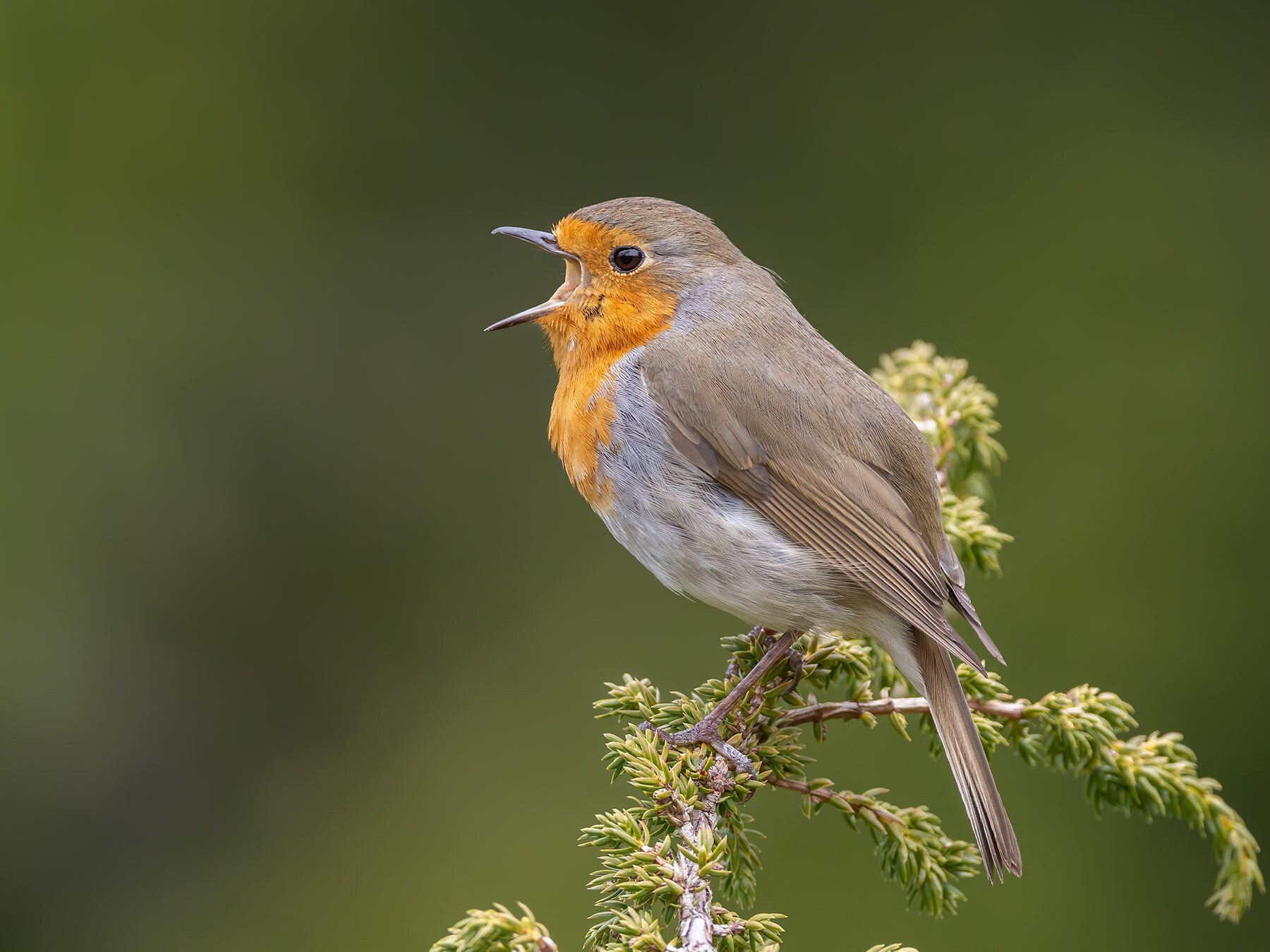
European Robin
A beloved garden companion, the Robin redbreast is the UK’s unofficial national bird. These cheerful birds can be seen and heard throughout the year as they forage and nest alongside us.
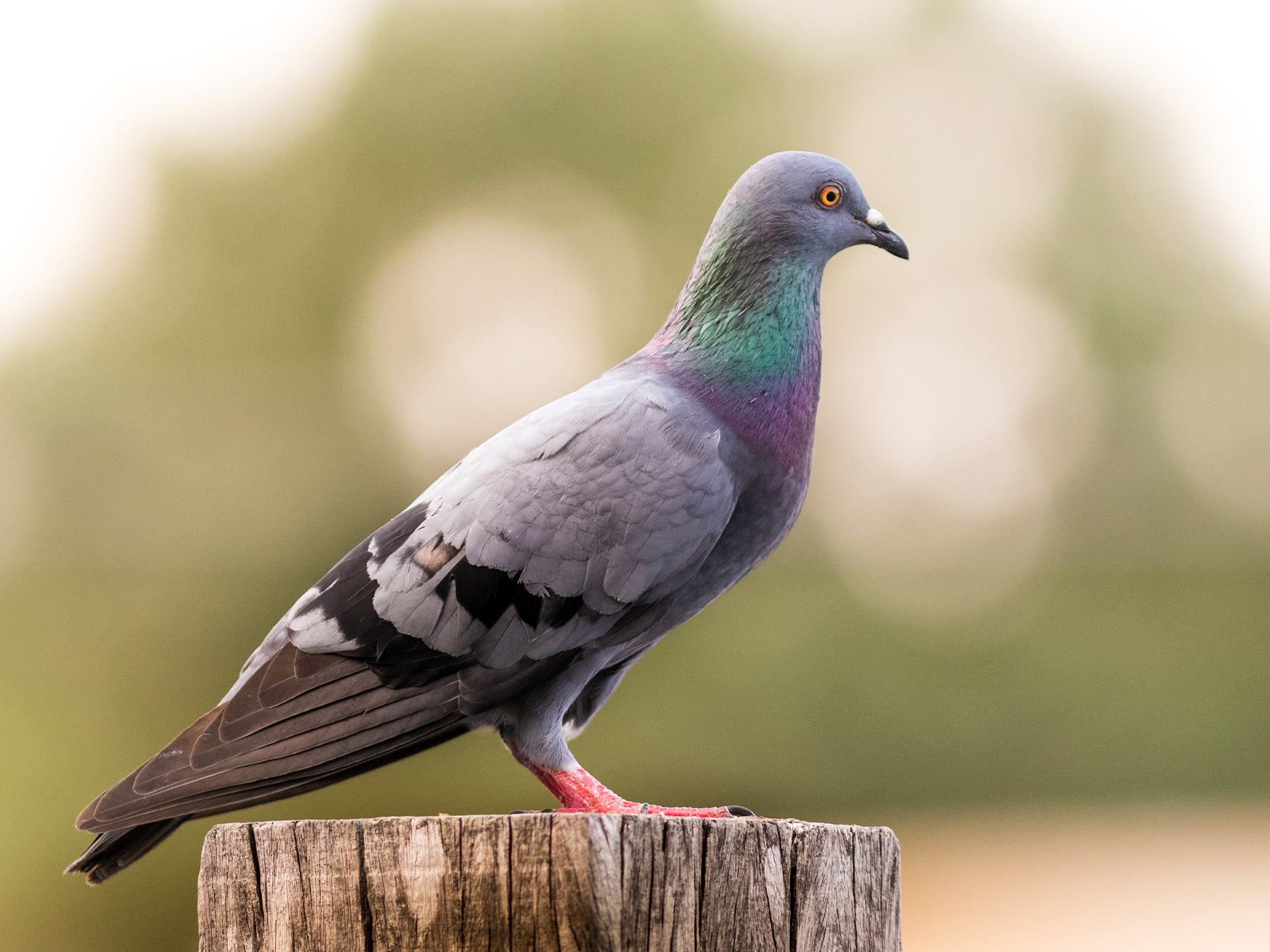
Rock Dove
One of the world’s most widespread birds and has been valued and cherished by humans for at least five millennia. Domesticated and trained for sport and transporting messages, these birds originated in the wilds of the Old World, where they still live today.
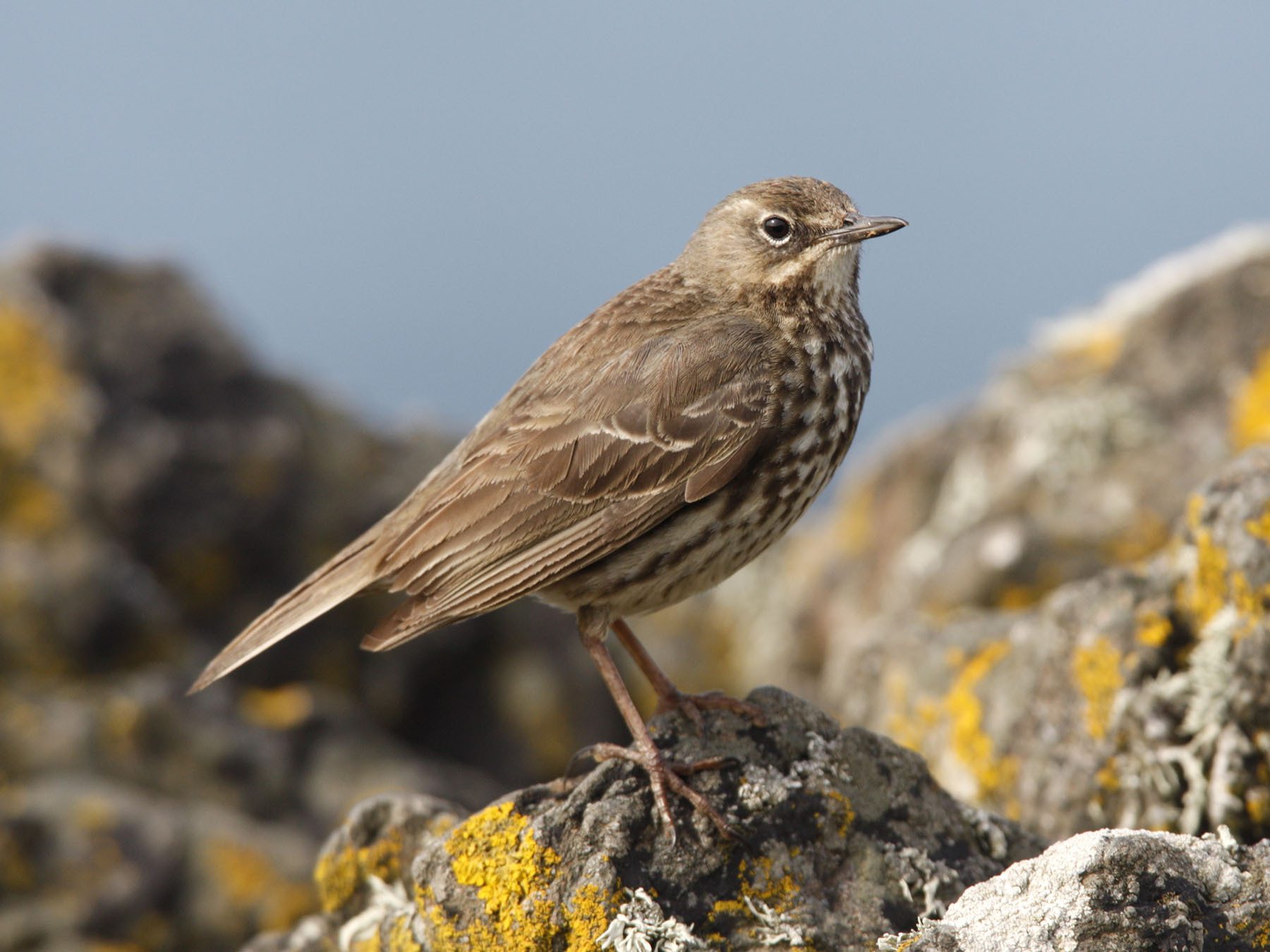
Rock Pipit
A hardy songbird that thrives on rocky coasts, braving salt spray and harsh winds to forage among the tides.
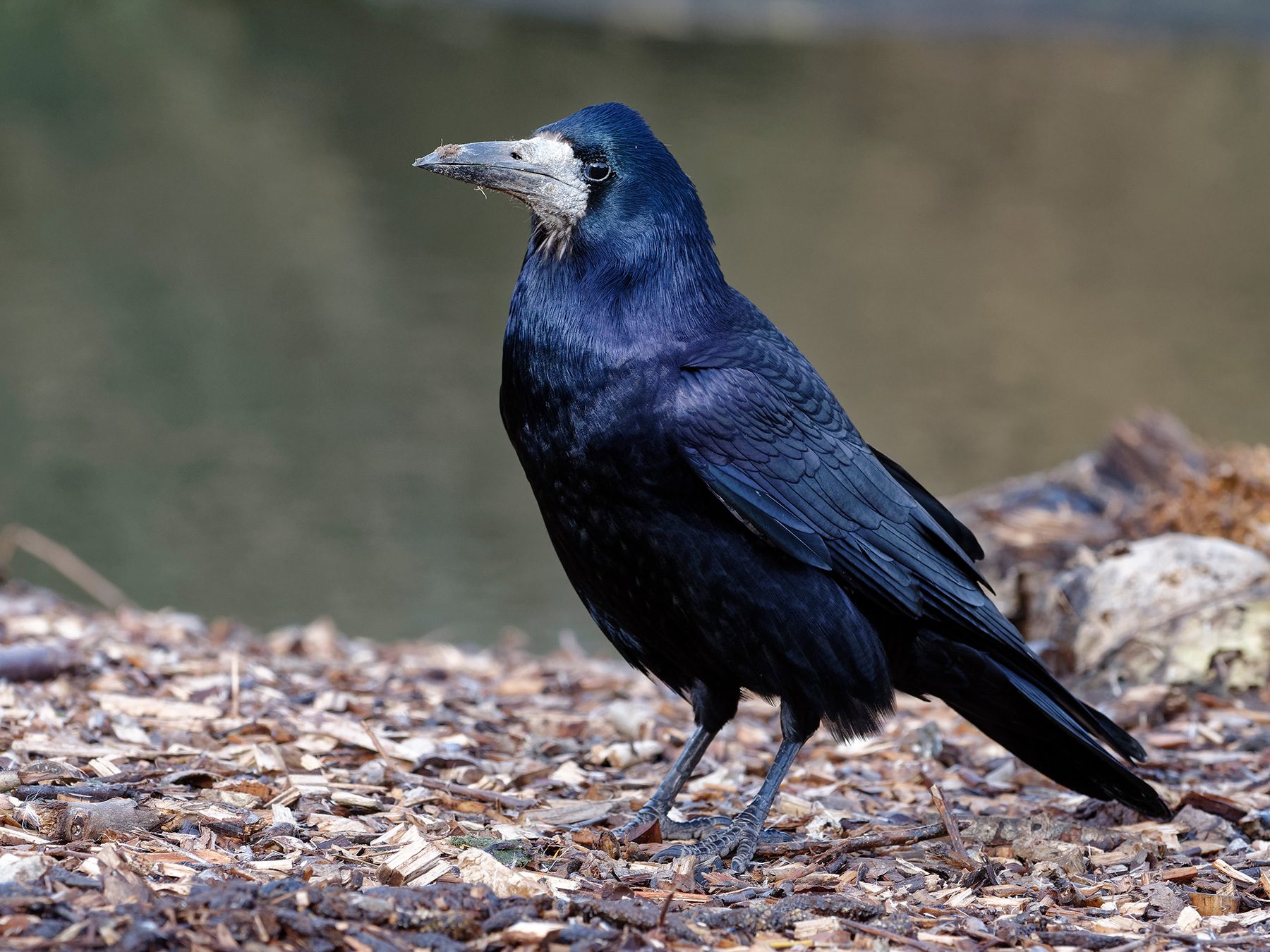
Rook
A gregarious bird of farmland, these intelligent birds are admired for their intelligence, maligned for their habit of eating grain, and revered for the good and bad omens they are thought to signify.
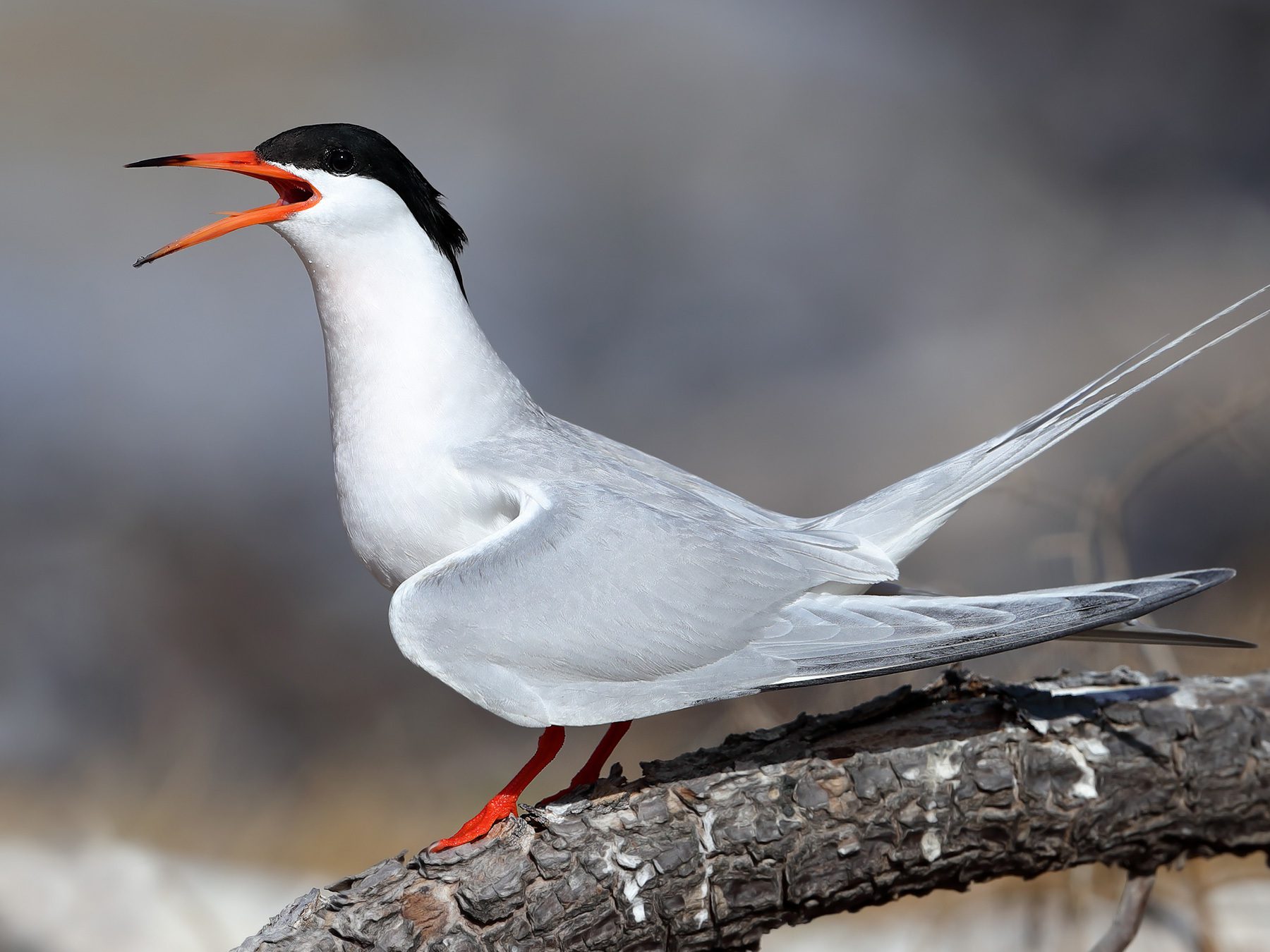
Roseate Tern
Roseate terns have a wide distribution range, and are found on six continents around the world. However, numbers have declined dramatically in some regions, leading to conservation concerns over the long-term survival of the species.
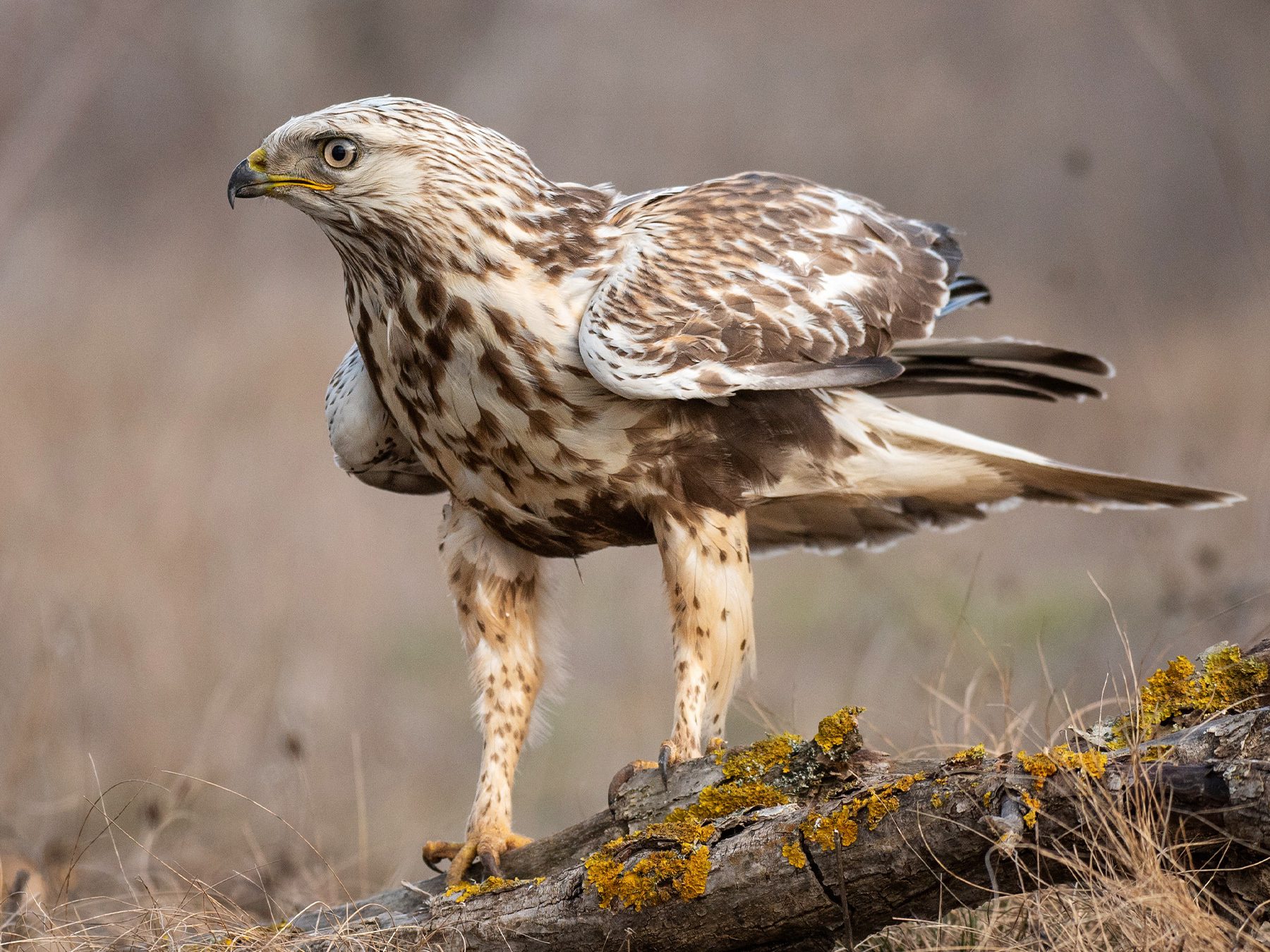
Rough-legged Hawk
Rough-legged hawks, known in the UK as rough-legged buzzards, are medium-sized birds of prey that breed in Arctic and sub-Arctic regions of North America, Europe and Asia, before migrating south once they have raised their young.
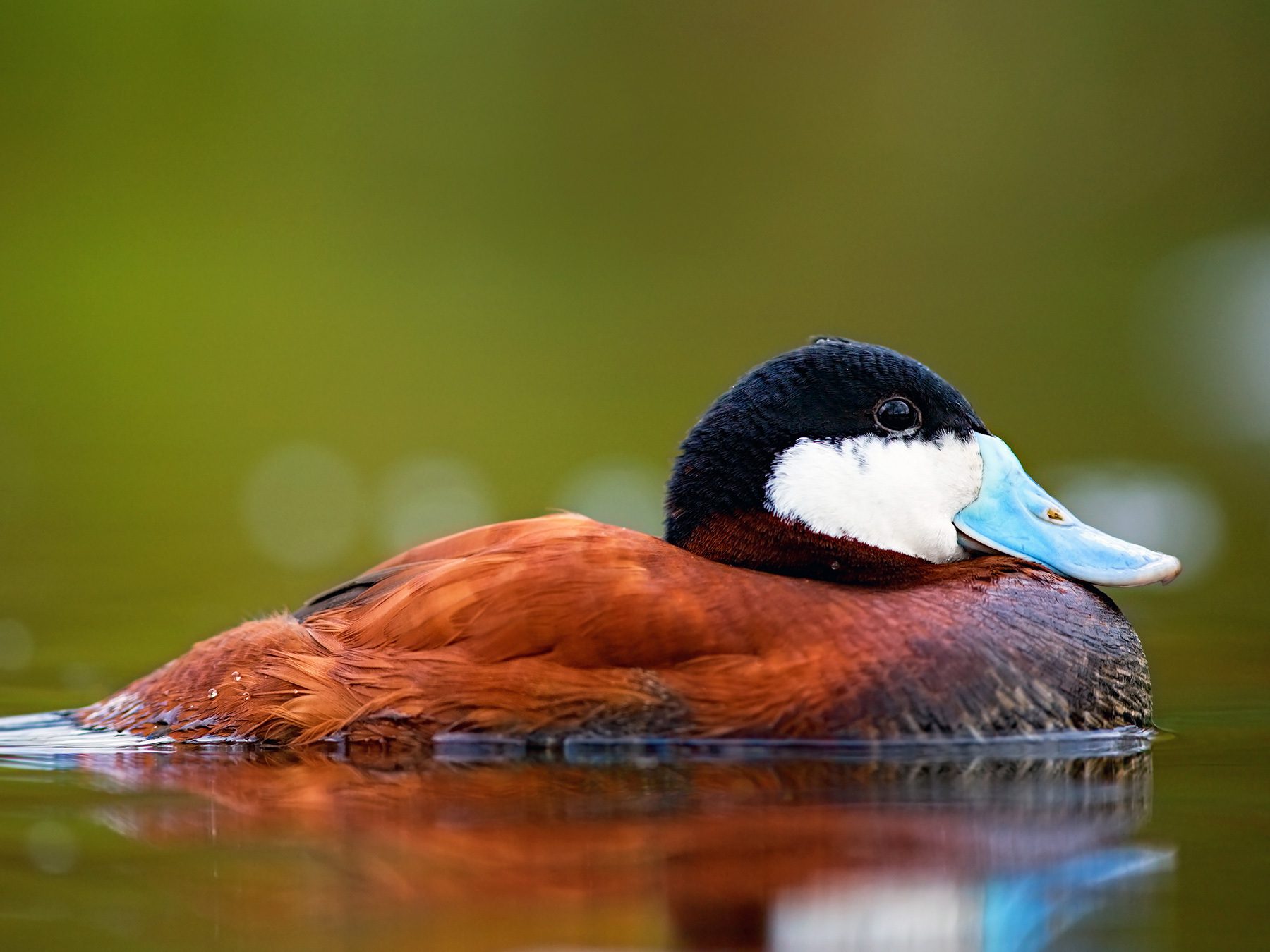
Ruddy Duck
With its distinctive blue bill and stiff-tailed posture, this small diving duck has an unusual courtship display.
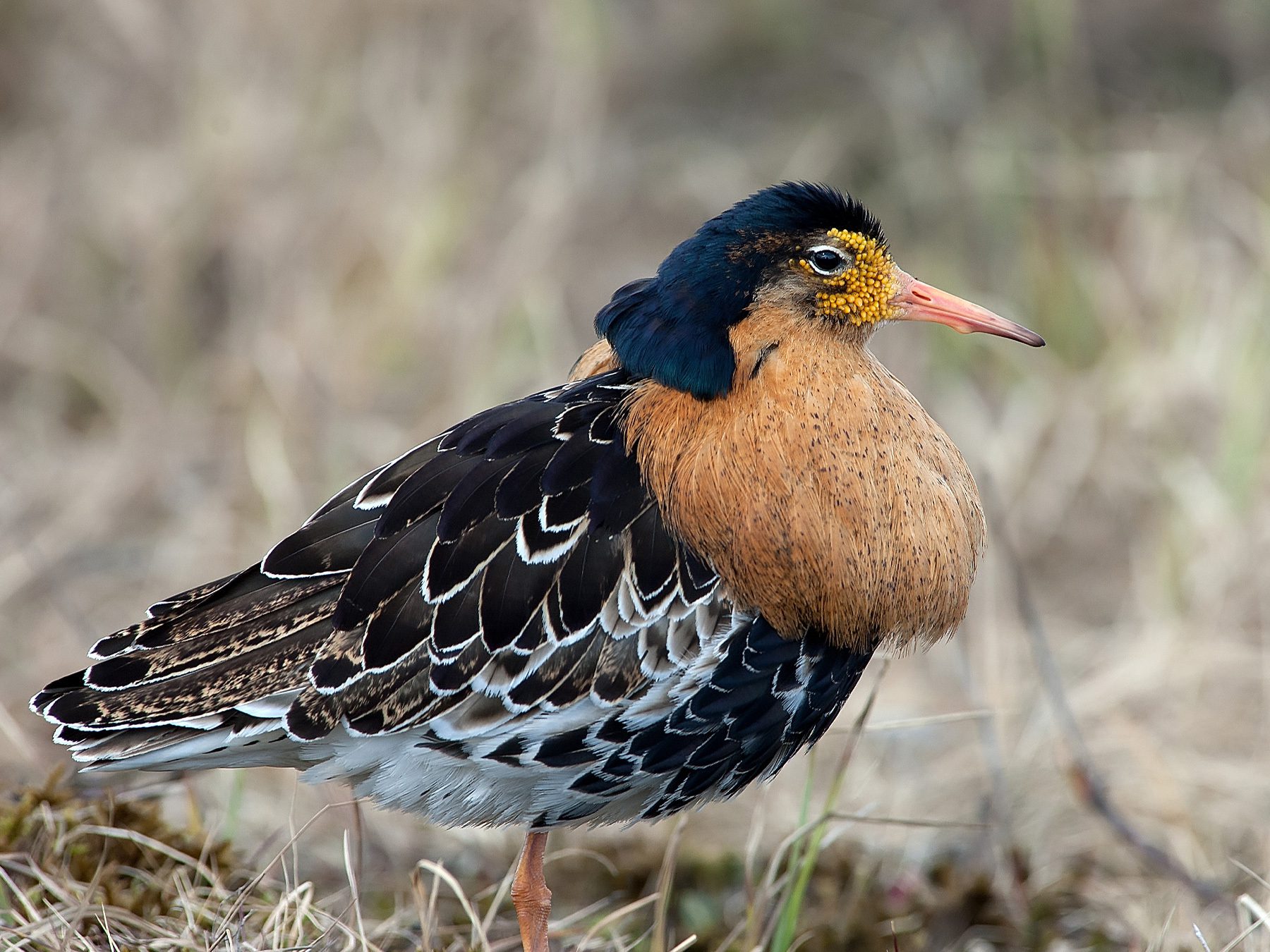
Ruff
Ruffs are among the most intriguing bird species on Earth, due to the diversity not just between males and females, but also between the three distinctly different types of males that occur.
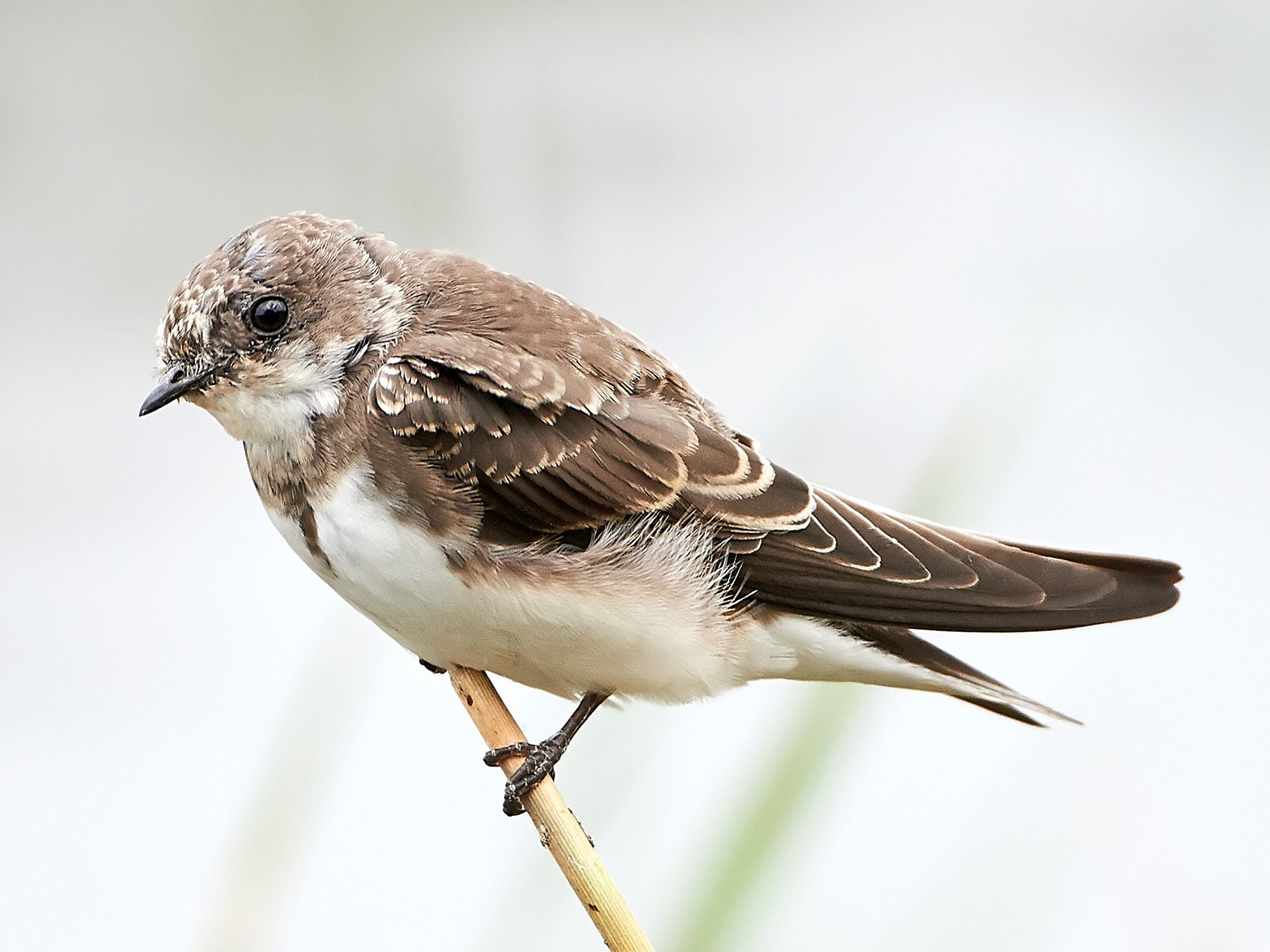
Sand Martin
A graceful and agile member of the swallow family, these gregarious migratory birds are most numerous along waterways where they nest in vertical eroded sand banks.
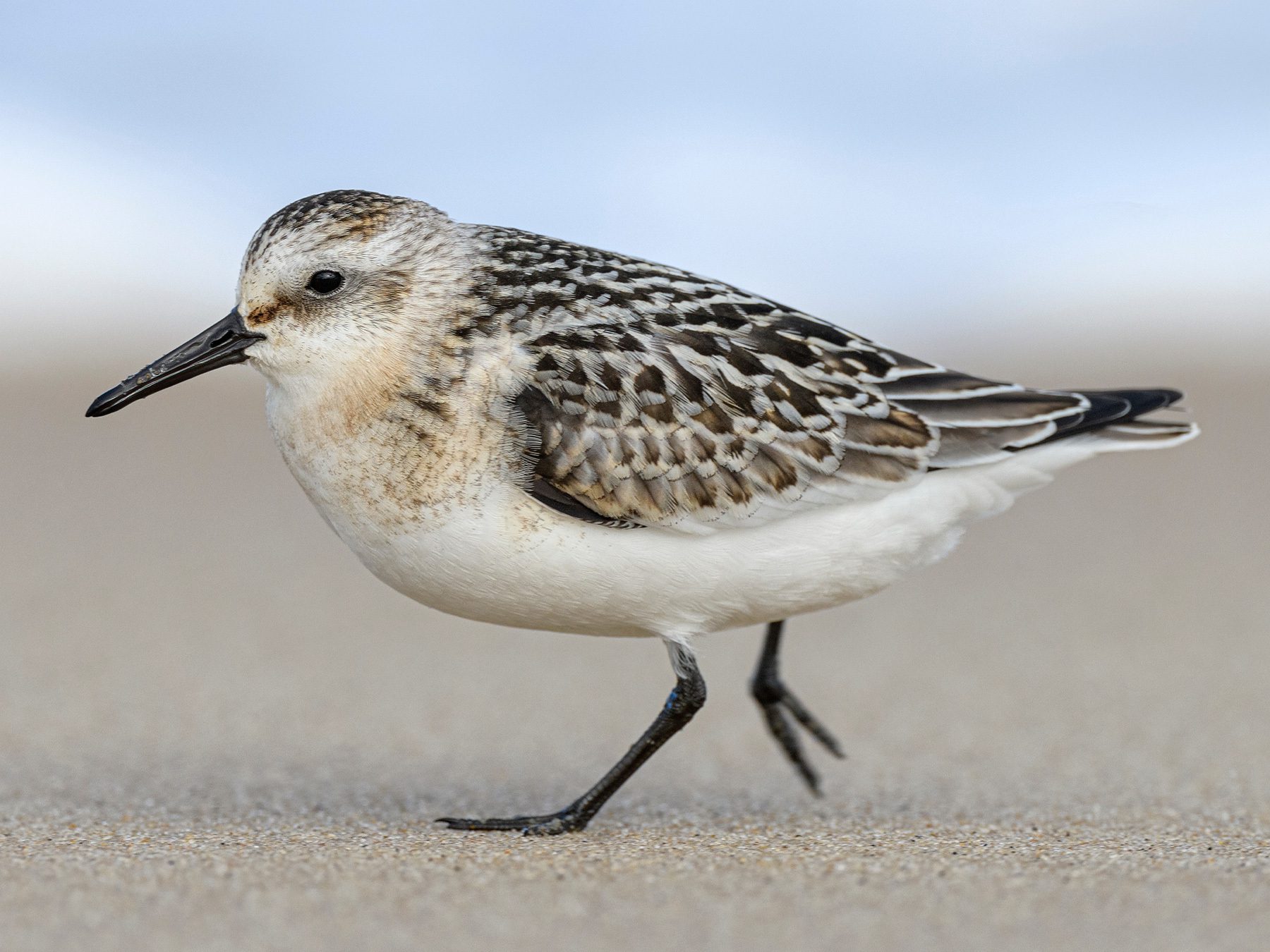
Sanderling
Scurrying along shorelines worldwide, these small shorebirds dash in and out with the waves, frantically pecking for tiny crustaceans.
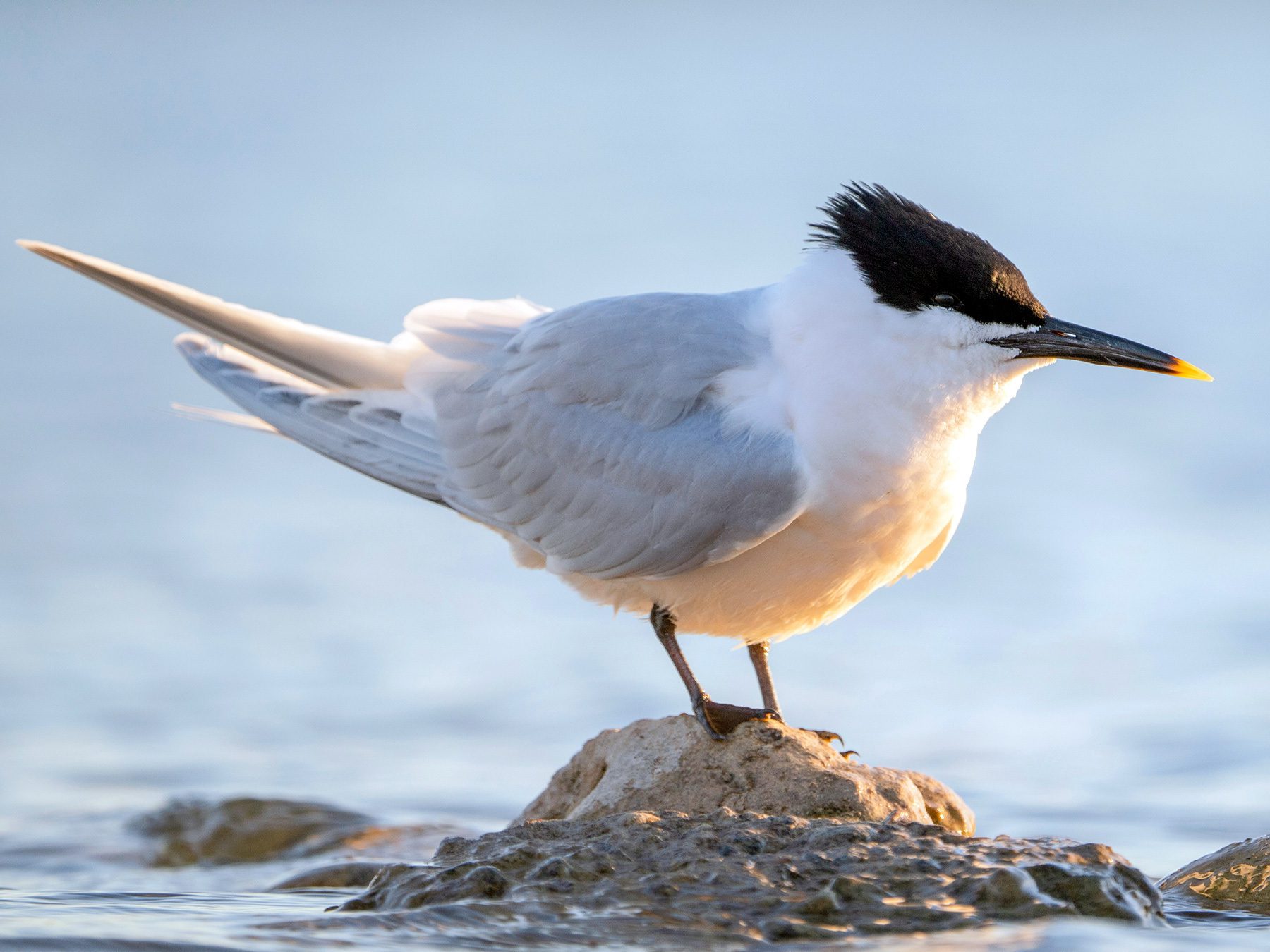
Sandwich Tern
Sandwich terns are migratory seabirds that breed at large nesting colonies along the warm-water coasts of Europe, parts of the south-eastern United States, the Caribbean and as far south as Patagonia in South America. Their distinctive yellow-tipped bill and shaggy black crest make them relatively unmistakable alongside similar seabird species.
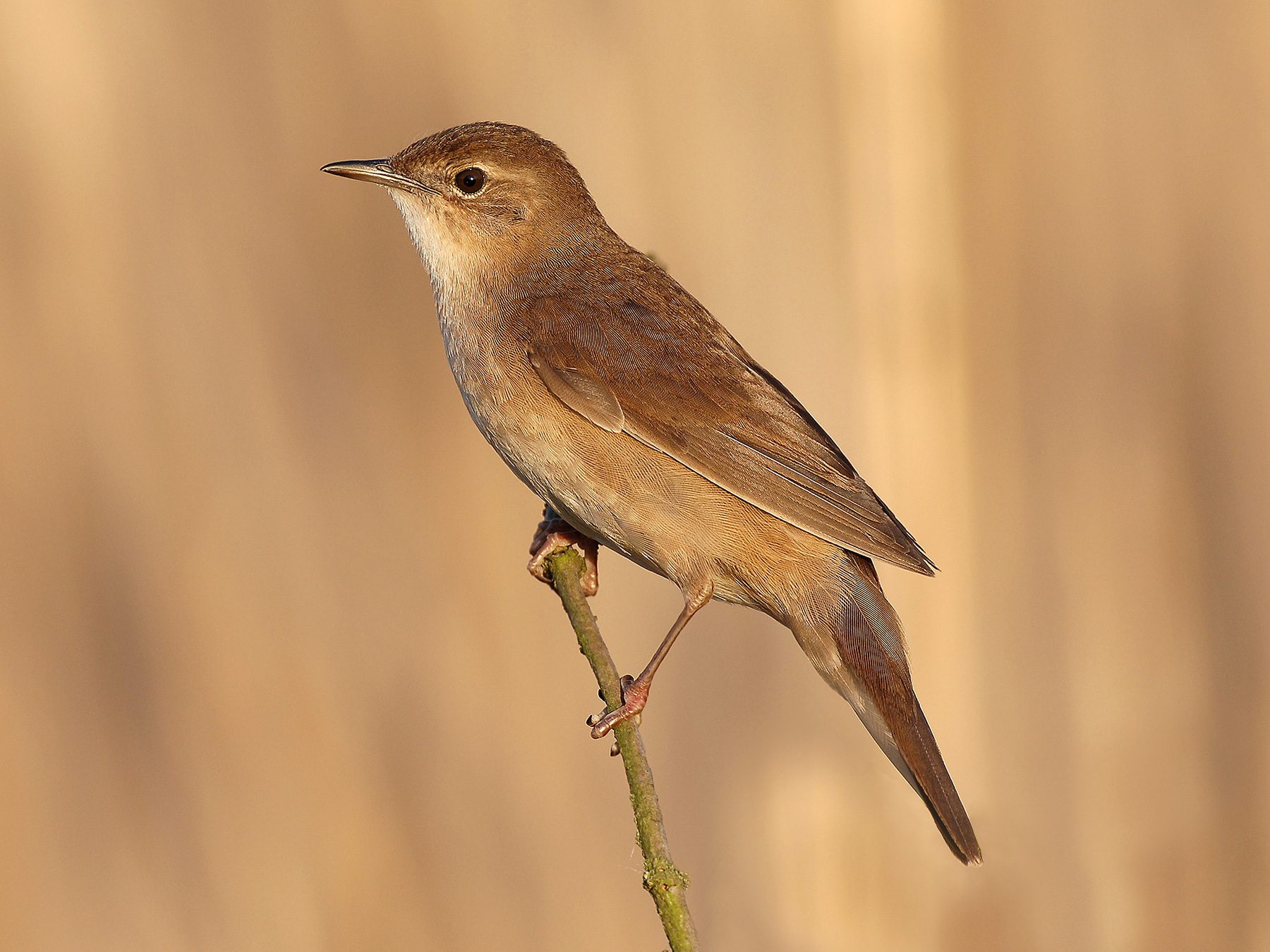
Savi's Warbler
This elusive songbird fills wetlands with its distinctive, insect-like trill, often heard but rarely seen among dense reedbeds.
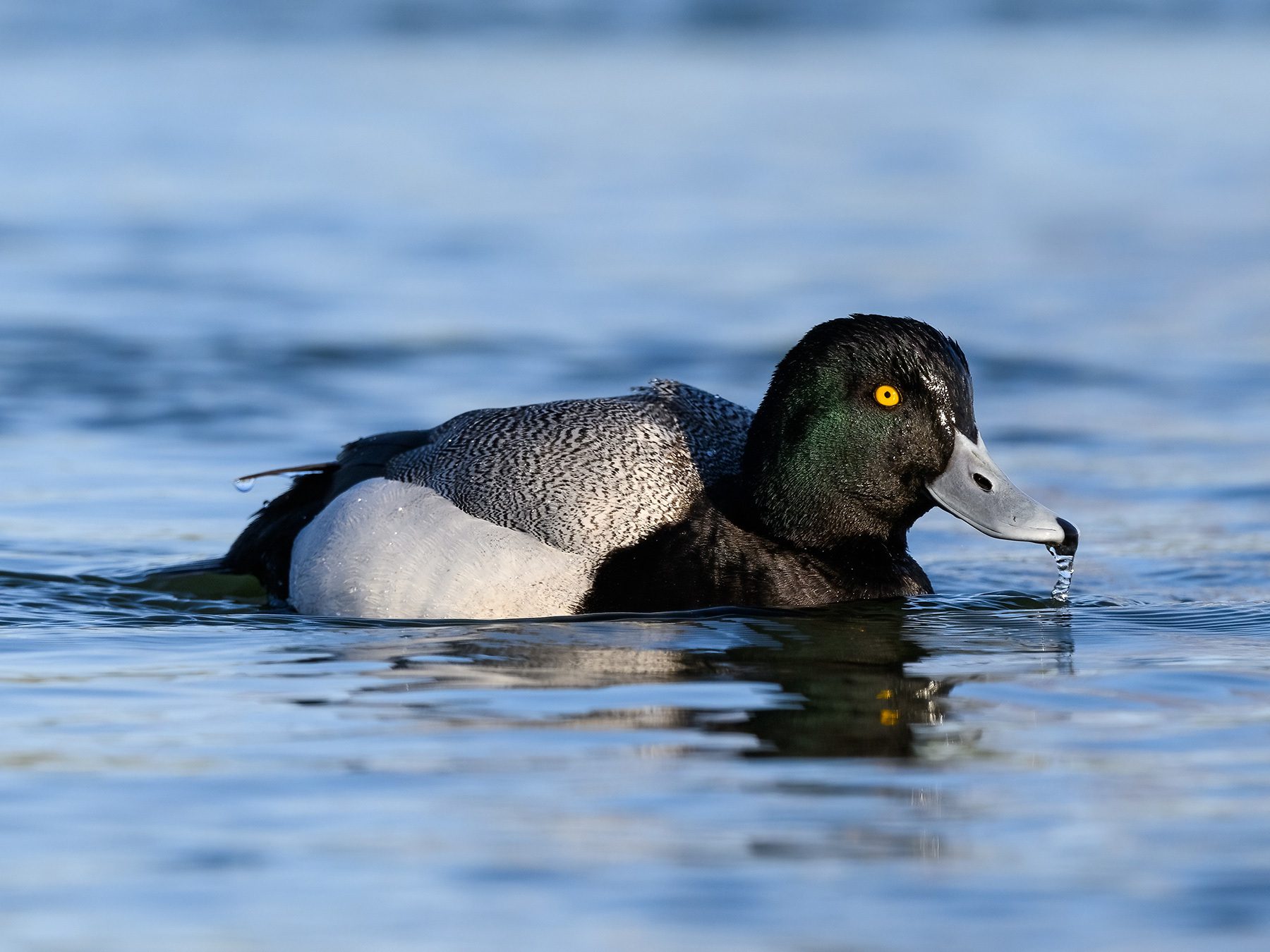
Greater Scaup
With its distinctive diving prowess and striking plumage, this sea duck is a favorite among coastal birdwatchers worldwide.
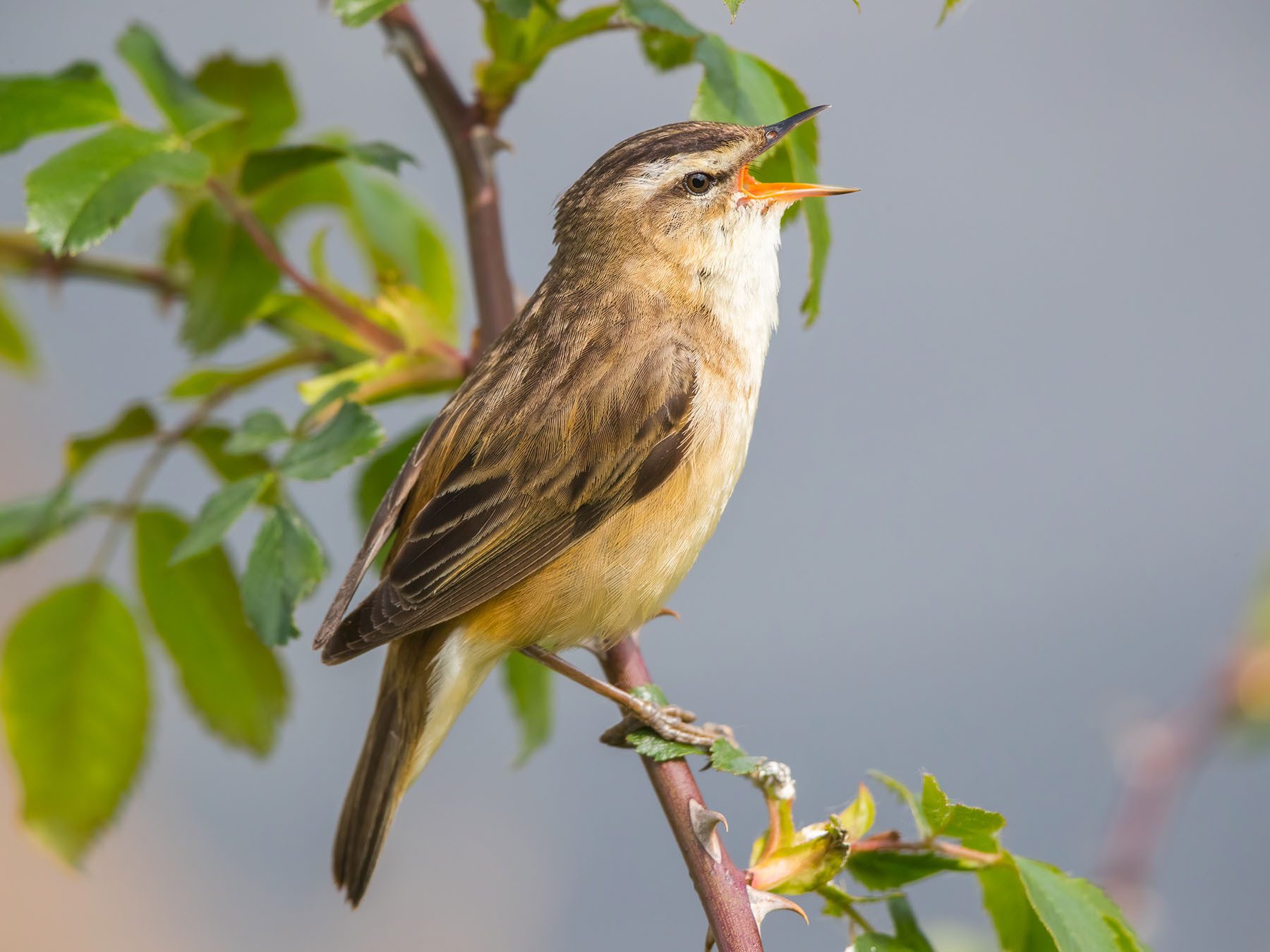
Sedge Warbler
This melodious reed-dweller fills wetlands with its energetic, scratchy song, often mimicking other birds in its lively performances.
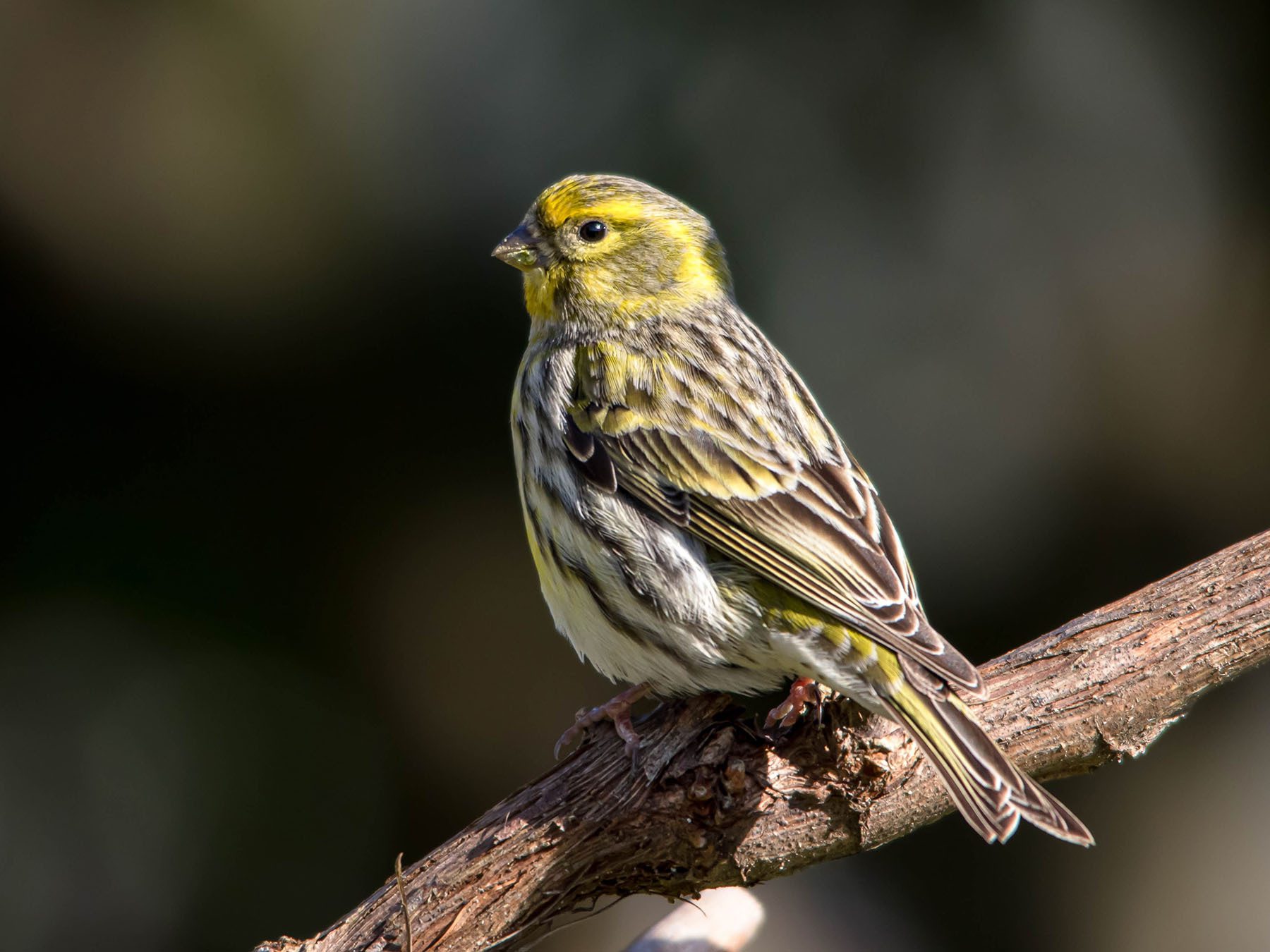
Serin
A cheerful yellow songbird with a canary-like voice, this tiny finch brightens gardens and woodlands across Europe and North Africa.
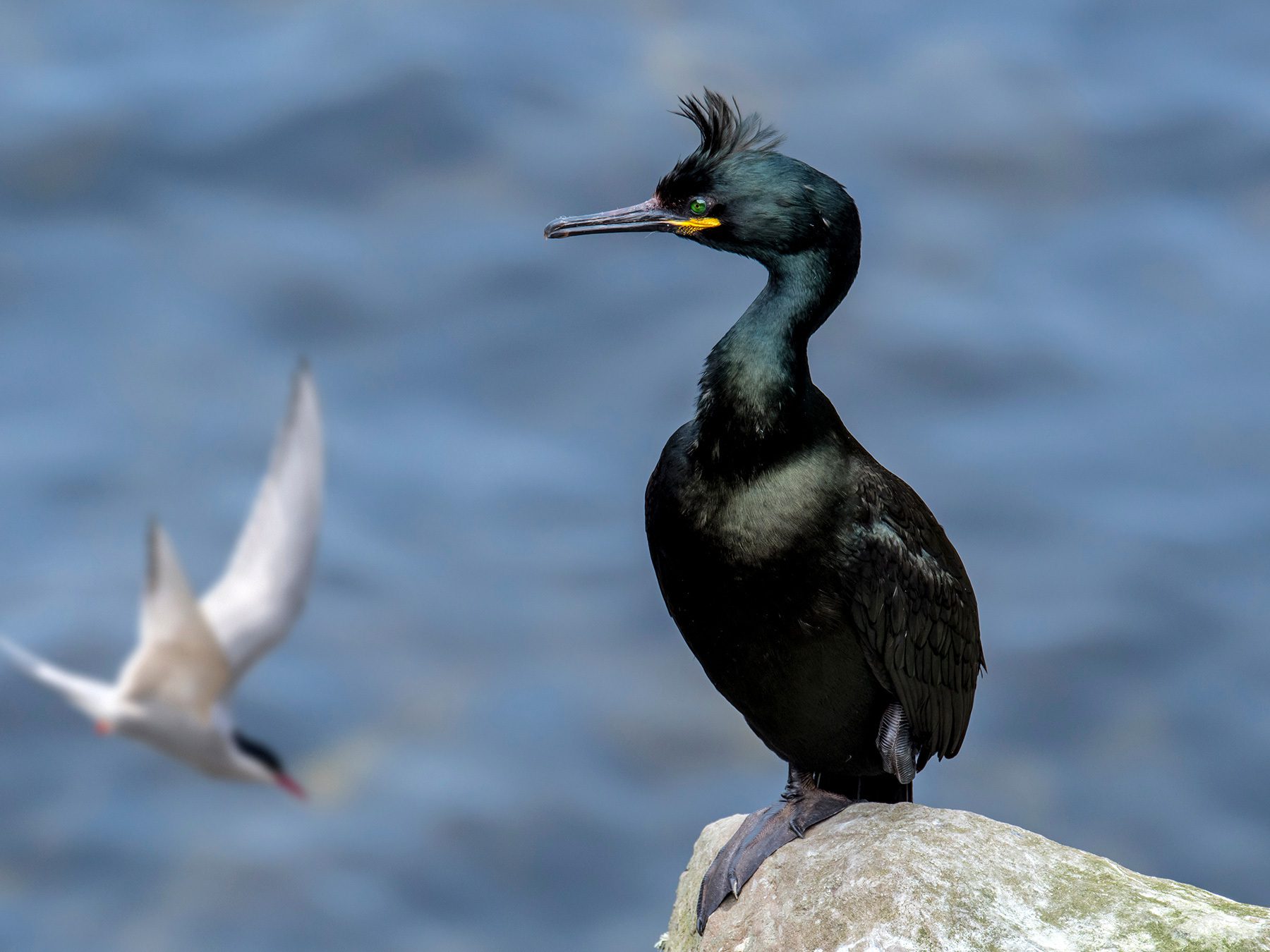
European Shag
With its close relative the cormorant, this coastal seabird bears a strong resemblance to dinosaurs and is often observed at rocky ocean-facing spots standing with its wings outstretched in a pose not unlike that of a prehistoric predator.
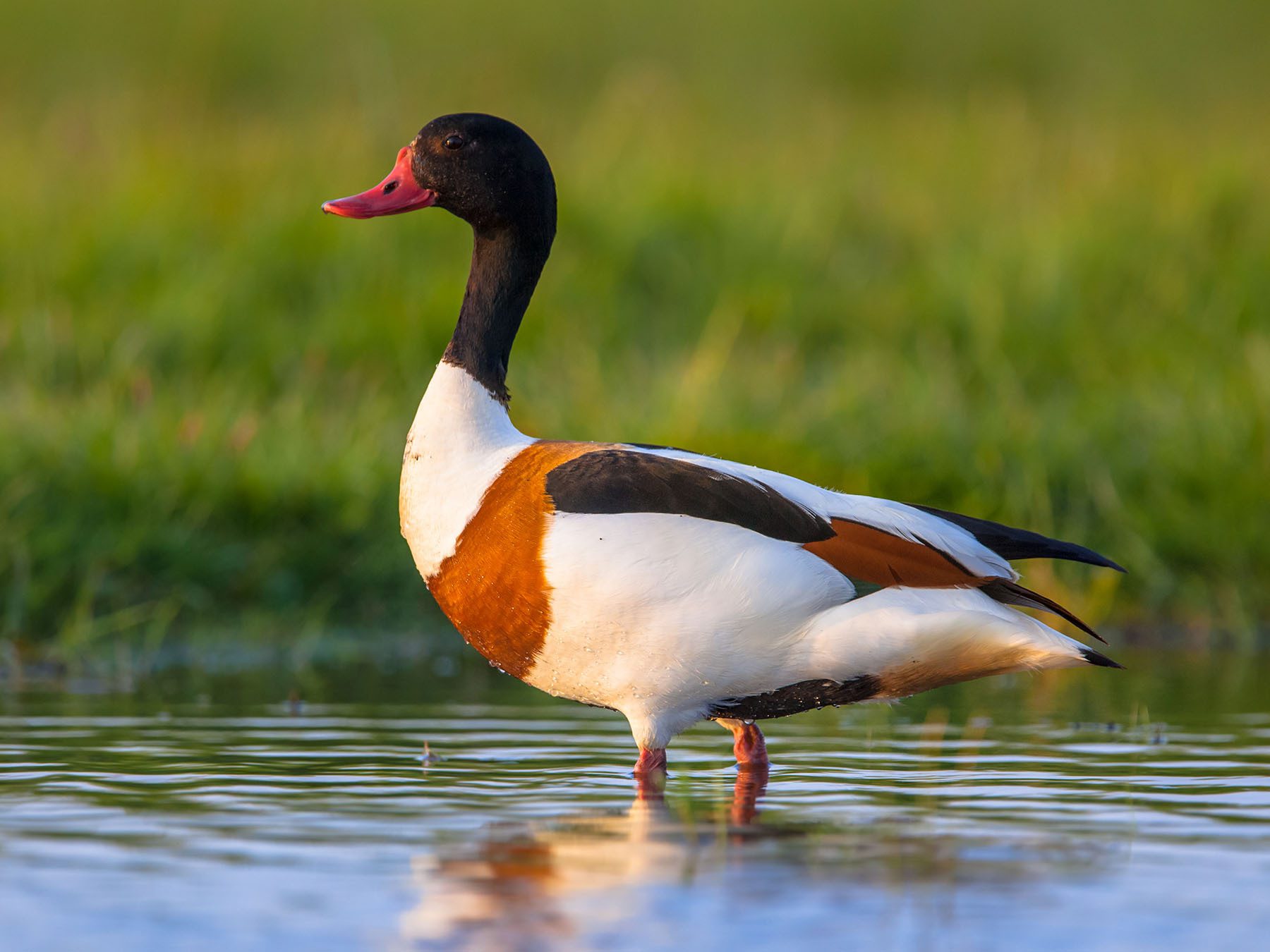
Common Shelduck
A striking waterfowl with bold black, white, chestnut plumage and bright red bills, found on coastal wetlands across Europe and Asia.
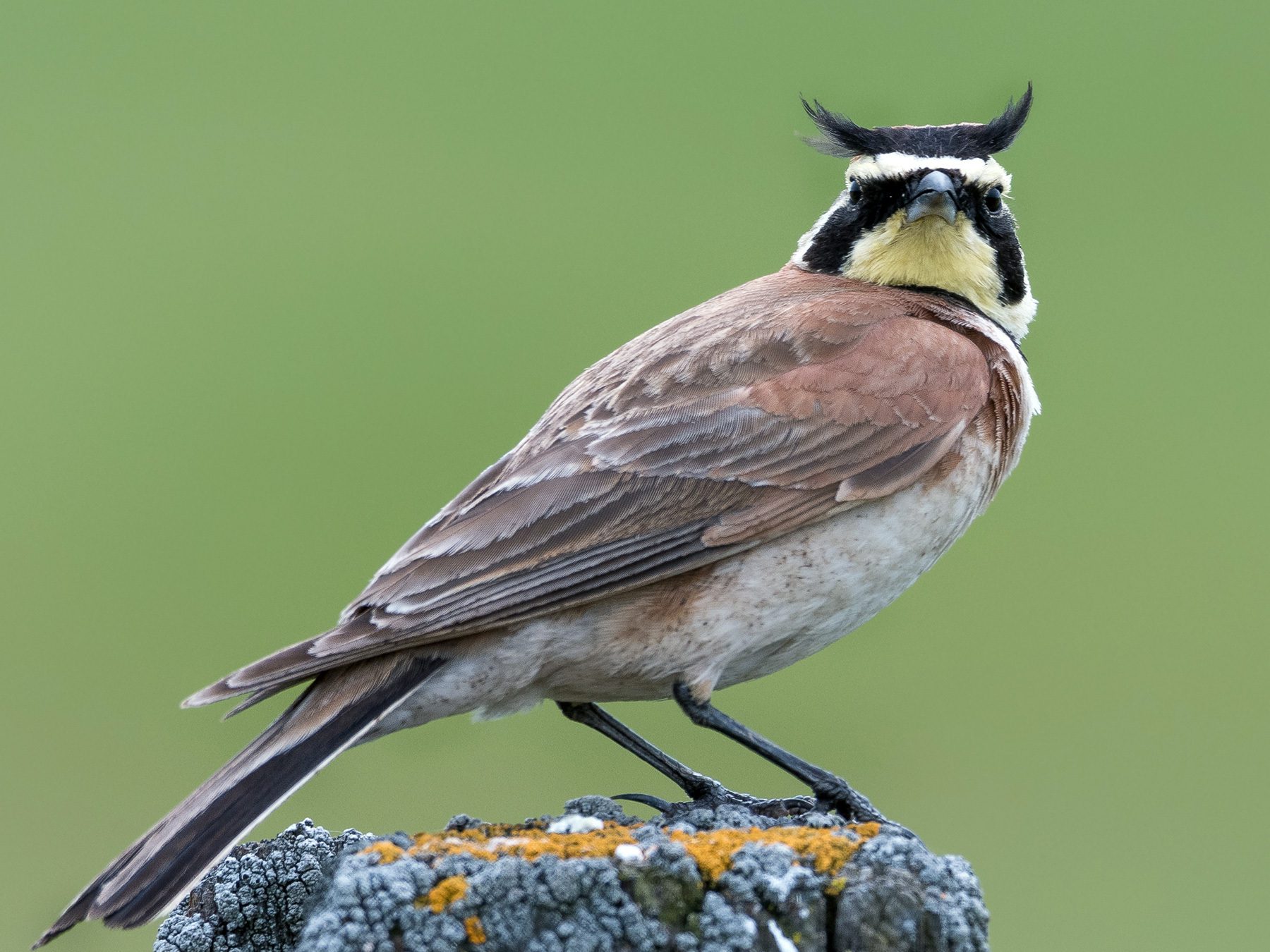
Horned Lark
With its distinctive "horns" and melodious song, this adaptable songbird thrives in open habitats across the Northern Hemisphere.
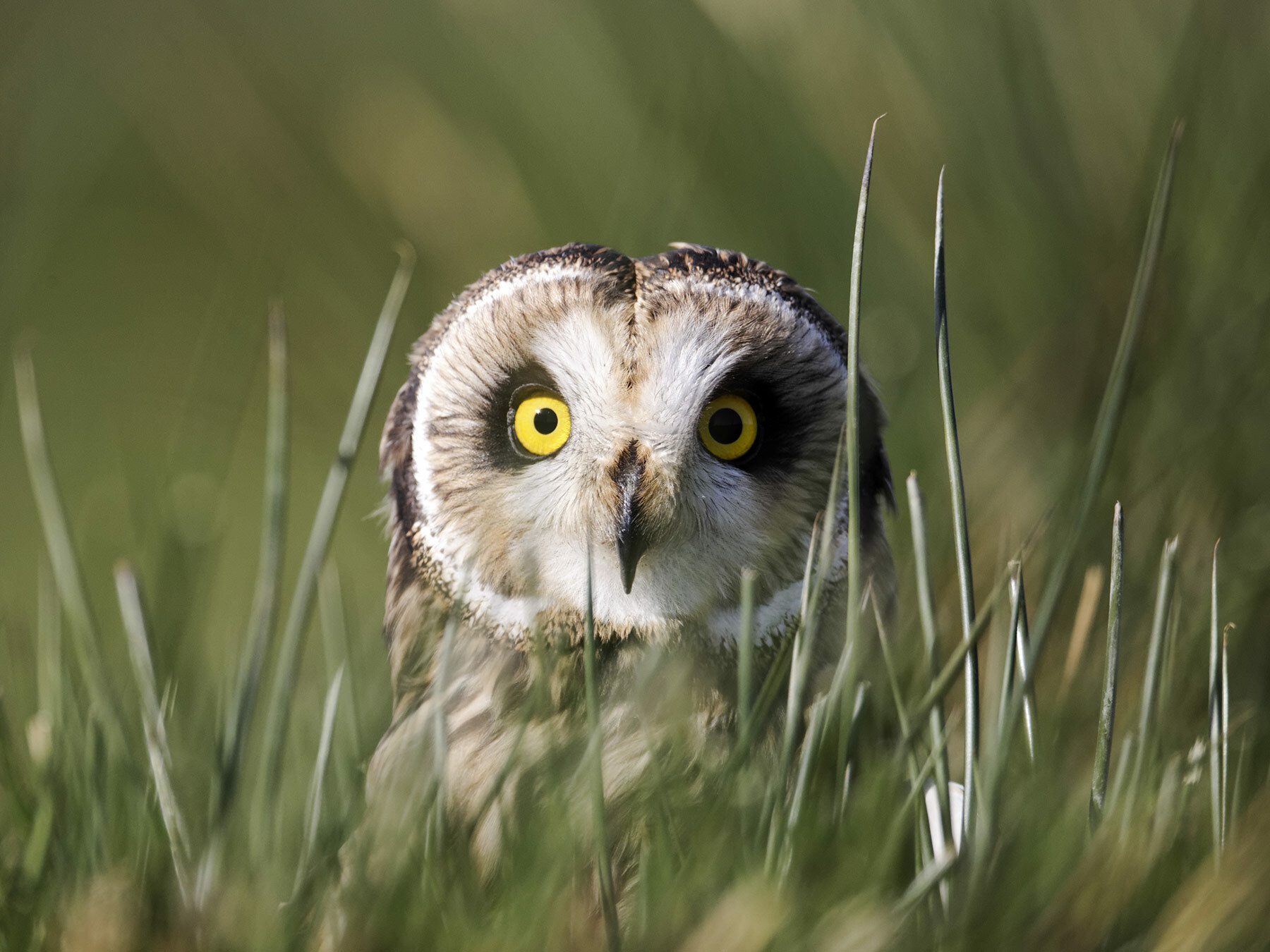
Short-eared Owl
Unlike most owls, this medium sized bird is often seen hunting during daylight hours, mainly around dawn and dusk and particularly across farmland and in grassland, marsh and moorland areas.
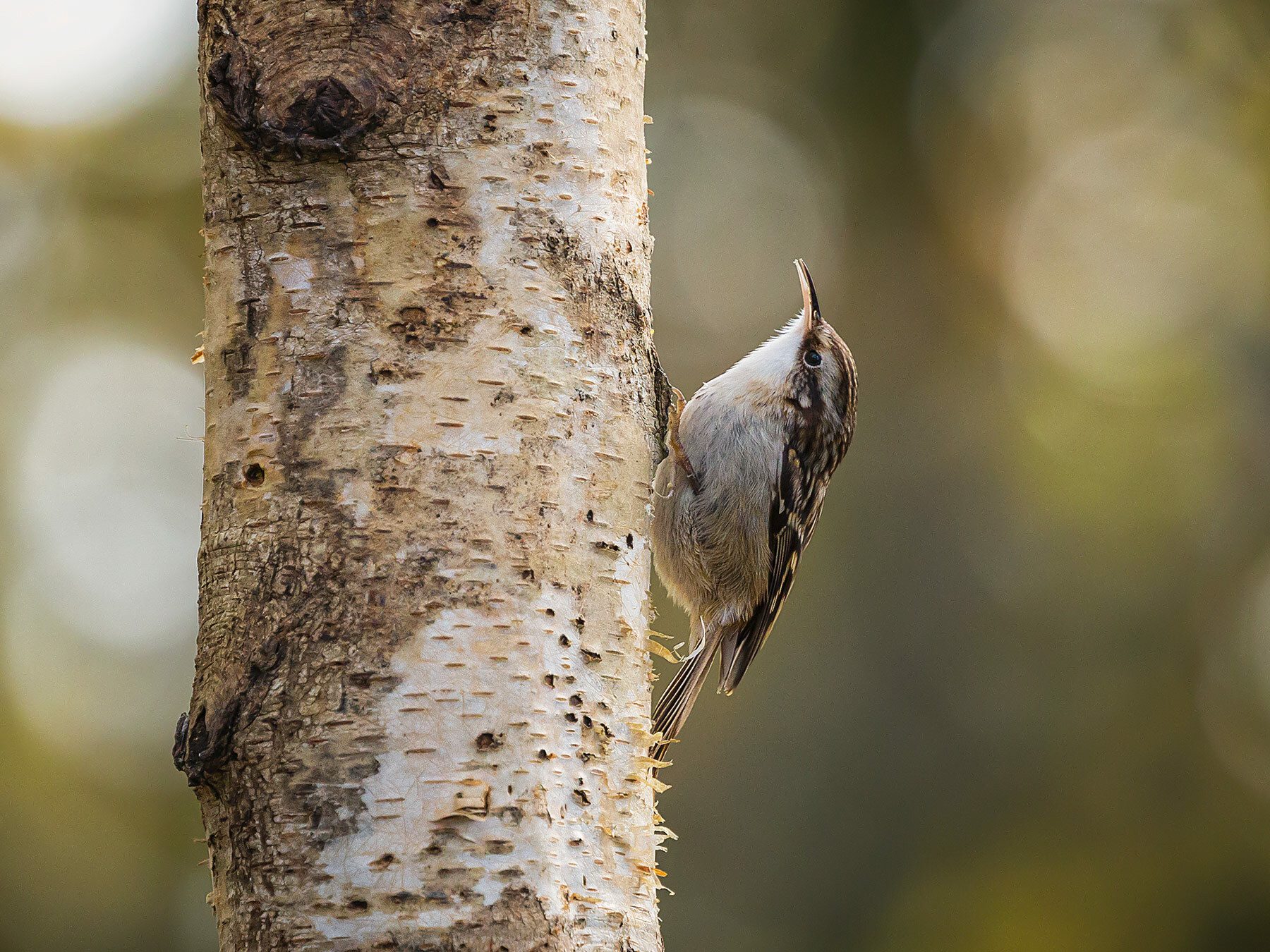
Short-toed Treecreeper
This tiny tree-climbing specialist scurries up trunks with spider-like agility, probing bark crevices for hidden insects with its curved bill.
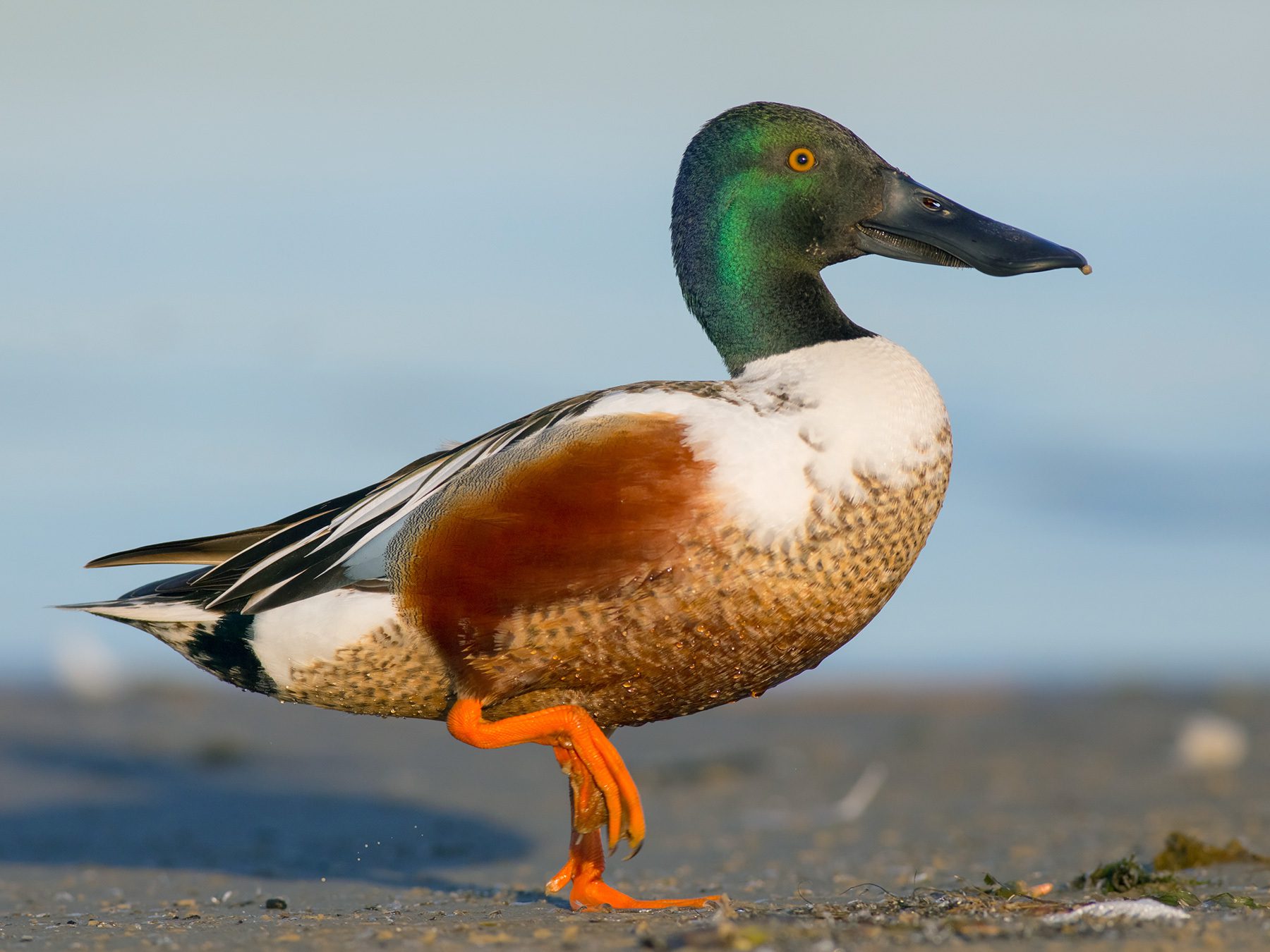
Northern Shoveler
With its oversized, spoon-shaped bill, this dabbling duck sifts through shallow waters for tasty morsels across wetlands worldwide.
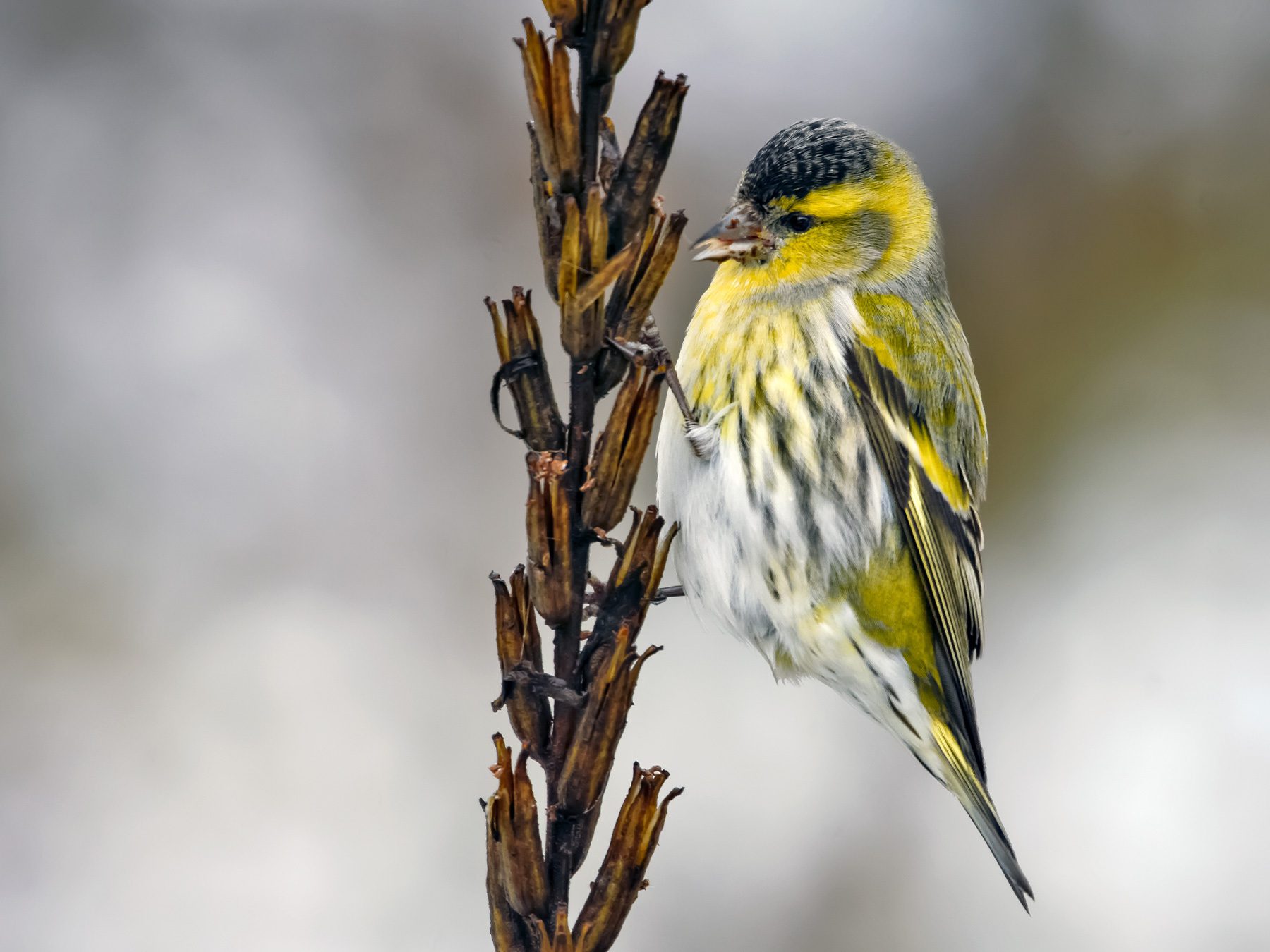
Eurasian Siskin
This vibrant yellow-and-green little finch brightens forests and gardens across Eurasia with its cheerful song and acrobatic feeding habits.
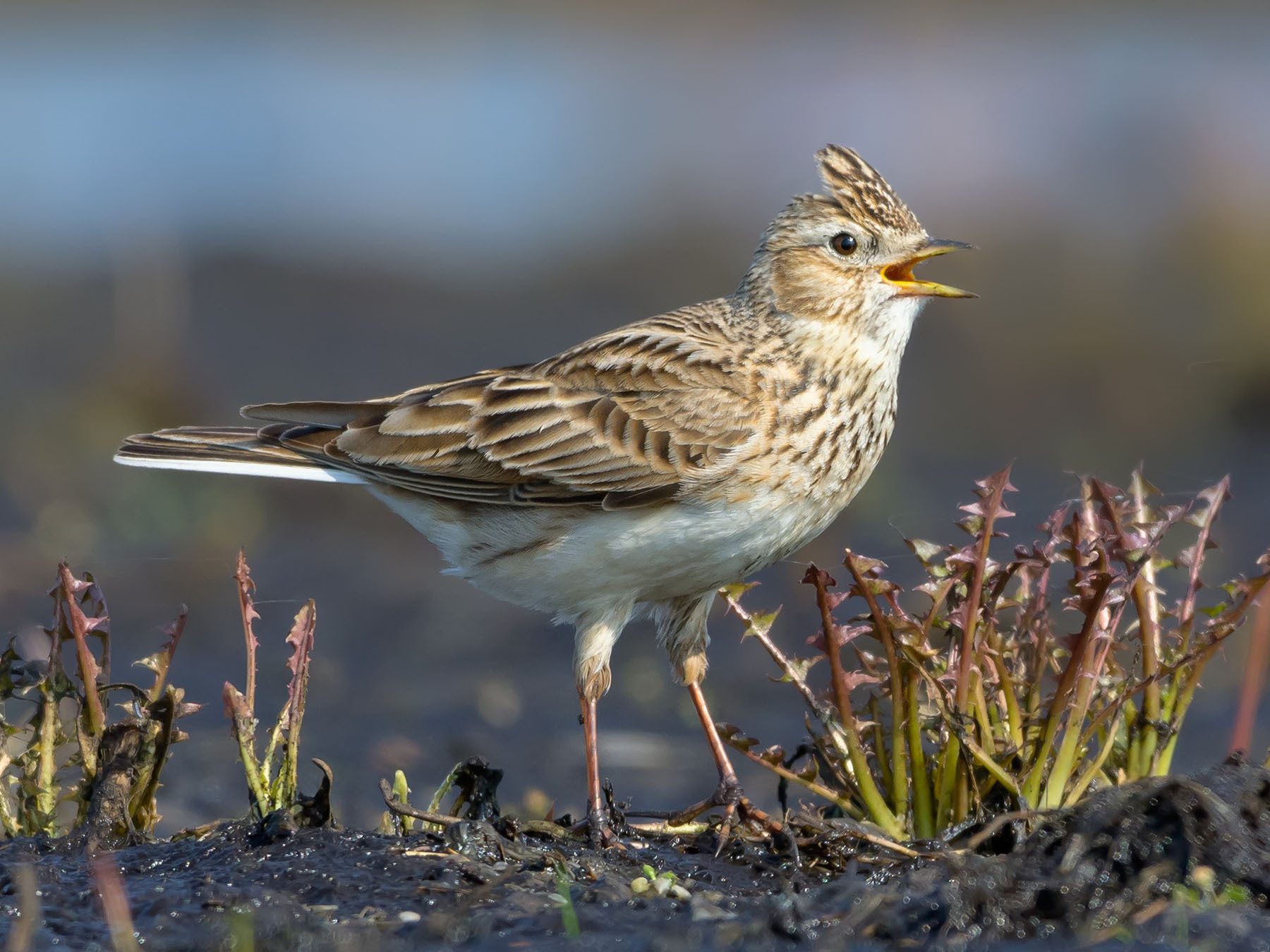
Eurasian Skylark
The musical maestro of open fields soars high, serenading the countryside with its famous song-flight display.
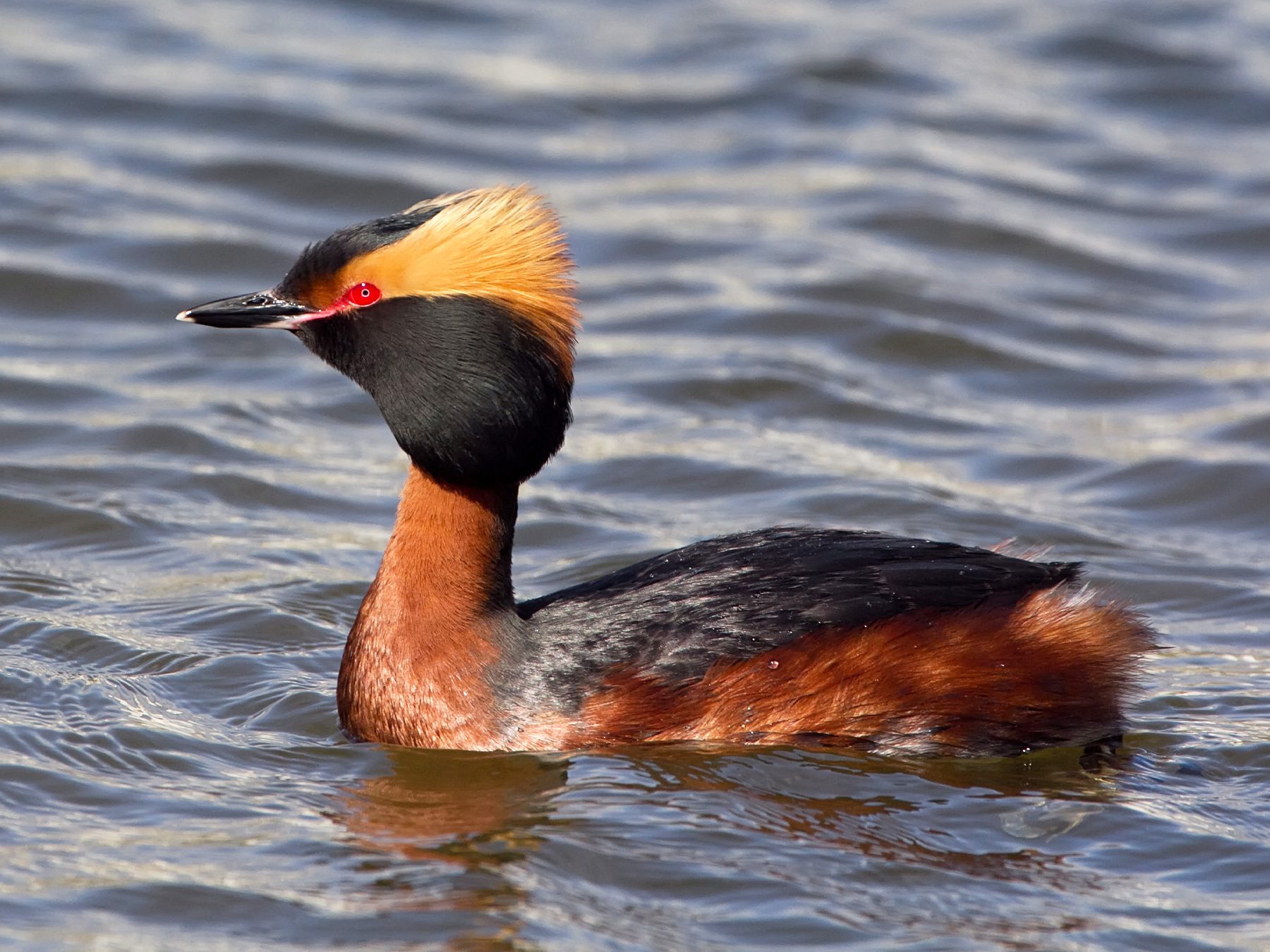
Horned Grebe
A whimsical waterbird with striking golden "horns," this small grebe transforms from drab to dazzling during the breeding season.

European Robin
A beloved garden companion, the Robin redbreast is the UK’s unofficial national bird. These cheerful birds can be seen and heard throughout the year as they forage and nest alongside us.

Rock Dove
One of the world’s most widespread birds and has been valued and cherished by humans for at least five millennia. Domesticated and trained for sport and transporting messages, these birds originated in the wilds of the Old World, where they still live today.

Rock Pipit
A hardy songbird that thrives on rocky coasts, braving salt spray and harsh winds to forage among the tides.

Rook
A gregarious bird of farmland, these intelligent birds are admired for their intelligence, maligned for their habit of eating grain, and revered for the good and bad omens they are thought to signify.

Roseate Tern
Roseate terns have a wide distribution range, and are found on six continents around the world. However, numbers have declined dramatically in some regions, leading to conservation concerns over the long-term survival of the species.

Rough-legged Hawk
Rough-legged hawks, known in the UK as rough-legged buzzards, are medium-sized birds of prey that breed in Arctic and sub-Arctic regions of North America, Europe and Asia, before migrating south once they have raised their young.

Ruddy Duck
With its distinctive blue bill and stiff-tailed posture, this small diving duck has an unusual courtship display.

Ruff
Ruffs are among the most intriguing bird species on Earth, due to the diversity not just between males and females, but also between the three distinctly different types of males that occur.

Sand Martin
A graceful and agile member of the swallow family, these gregarious migratory birds are most numerous along waterways where they nest in vertical eroded sand banks.

Sanderling
Scurrying along shorelines worldwide, these small shorebirds dash in and out with the waves, frantically pecking for tiny crustaceans.

Sandwich Tern
Sandwich terns are migratory seabirds that breed at large nesting colonies along the warm-water coasts of Europe, parts of the south-eastern United States, the Caribbean and as far south as Patagonia in South America. Their distinctive yellow-tipped bill and shaggy black crest make them relatively unmistakable alongside similar seabird species.

Savi's Warbler
This elusive songbird fills wetlands with its distinctive, insect-like trill, often heard but rarely seen among dense reedbeds.

Greater Scaup
With its distinctive diving prowess and striking plumage, this sea duck is a favorite among coastal birdwatchers worldwide.

Sedge Warbler
This melodious reed-dweller fills wetlands with its energetic, scratchy song, often mimicking other birds in its lively performances.

Serin
A cheerful yellow songbird with a canary-like voice, this tiny finch brightens gardens and woodlands across Europe and North Africa.

European Shag
With its close relative the cormorant, this coastal seabird bears a strong resemblance to dinosaurs and is often observed at rocky ocean-facing spots standing with its wings outstretched in a pose not unlike that of a prehistoric predator.

Common Shelduck
A striking waterfowl with bold black, white, chestnut plumage and bright red bills, found on coastal wetlands across Europe and Asia.

Horned Lark
With its distinctive "horns" and melodious song, this adaptable songbird thrives in open habitats across the Northern Hemisphere.

Short-eared Owl
Unlike most owls, this medium sized bird is often seen hunting during daylight hours, mainly around dawn and dusk and particularly across farmland and in grassland, marsh and moorland areas.

Short-toed Treecreeper
This tiny tree-climbing specialist scurries up trunks with spider-like agility, probing bark crevices for hidden insects with its curved bill.

Northern Shoveler
With its oversized, spoon-shaped bill, this dabbling duck sifts through shallow waters for tasty morsels across wetlands worldwide.

Eurasian Siskin
This vibrant yellow-and-green little finch brightens forests and gardens across Eurasia with its cheerful song and acrobatic feeding habits.

Eurasian Skylark
The musical maestro of open fields soars high, serenading the countryside with its famous song-flight display.

Horned Grebe
A whimsical waterbird with striking golden "horns," this small grebe transforms from drab to dazzling during the breeding season.